“What’s the world’s first book?” I’d been giving a presentation on The Evolution of the Book, and a participant asked this quite straightforward question…which really doesn’t allow for an easy answer. Here are some candidates, depending how you define “book,” with their opening sentences. Why include those? Because ever since people have been trying to record their thoughts for someone else to read, they’ve been faced with the writer’s eternal quest: How to hook your audience right away? The examples that follow, in chronological order, present us with some of the finest “first lines” every written.
The Epic of Gilgamesh, written in cuneiform on clay tablets, dates back to at least 1800 BC, although the bulk of the surviving tablets are about 600 years younger. This Mesopotamian poem chronicles the supernatural tales of Gilgamesh, king of Uruk (based on a real character who lived around 2800 BC), and his pal Endiku. One of the earliest flood legends, of many, is in Gilgamesh, and it’s probably the one that gave rise to the Biblical yarn of Noah’s ark.
He who saw all, who was the foundation of the land, who knew (everything), was wise in all matters: Gilgamesh.
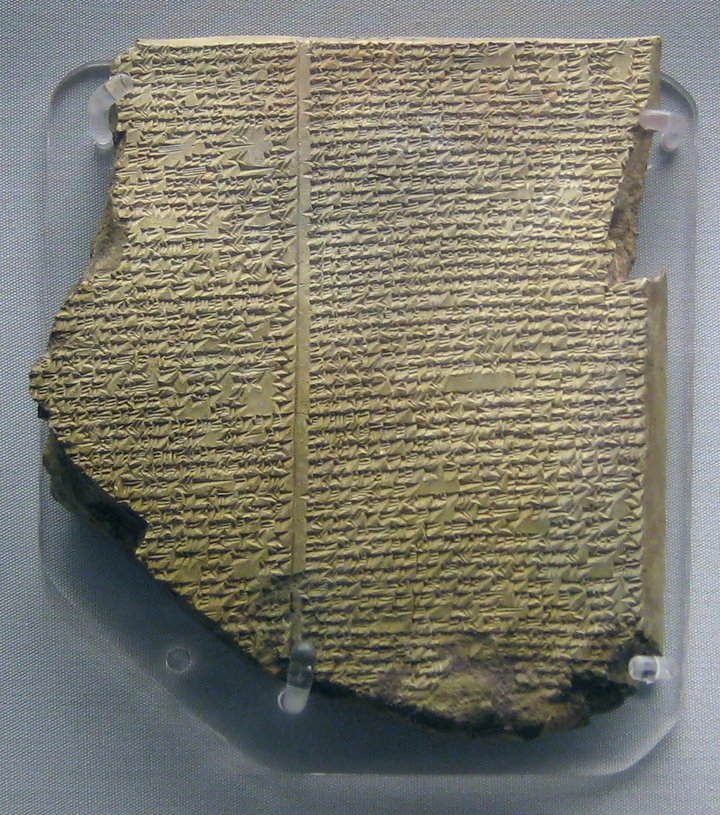
Epic of Gilgamesh “Flood Tablet” from the library of Ashurbanipal, 7th century BC, written in Akkadian cuneiform. (British Museum/BabelStone/Creative Commons)
The Iliad, traditionally written down by the blind poet Homer around 750 BC, had been composed some 400 years earlier, during the late Bronze Age. It’s 1,500-odd lines had been kept alive all that time by an unbroken line of oral reciters, since writing disappeared during the Greek “Dark Ages,” about 1200-800 BC. The Iliad had a profound literary and religious significance for the ancient Greeks, comparable to the regard we now have for Shakespeare and the Bible.
Sing, O goddess, the anger of Achilles son of Peleus, that brought countless ills upon the Achaeans.
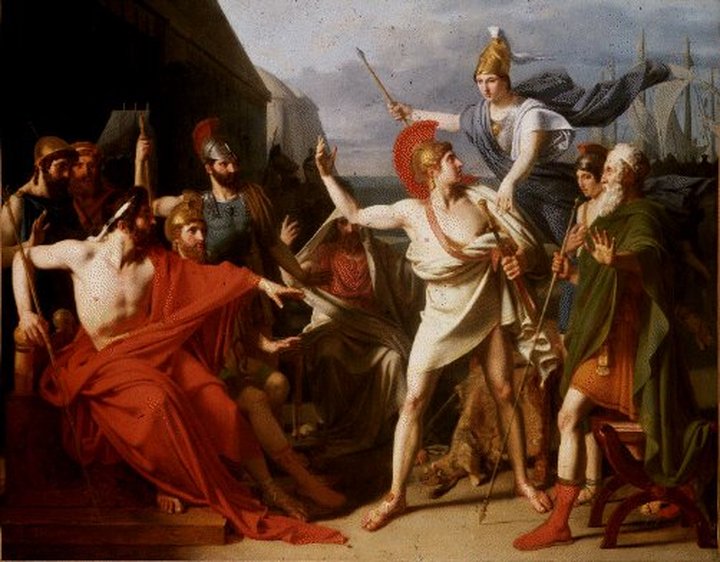
Wrath of Achilles,” Michel Drolling 1786-1851 (Public domain)
The Bible, dating from around 600 BC in written form, is easily the biggest bestseller of all time with over five billion copies printed in various translations and configurations.
In the beginning God created the heavens and the earth.
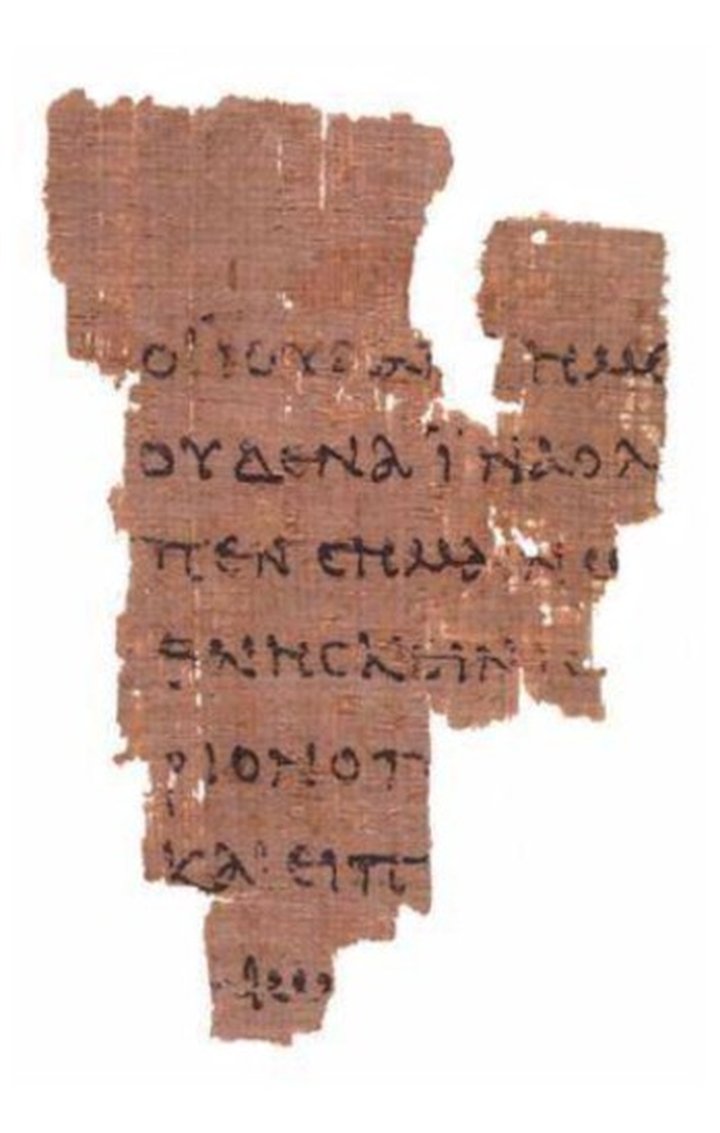
Oldest known fragment of the New Testament from the Book of John. Papryus, 2nd century AD. (John Rylands Library/Public domain)
Beowulf. The earliest manuscript of Beowulf, the monster-battling Scandinavian superhero, is dated around 950 AD. It’s generally regarded as the first great work of literature in English. Old English, true, but still recognizably English. Here’s the opening of a recently published translation by J.R.R. (LOTR) Tolkien:
Lo! The glory of the kings of the people of the Spear-Danes in days of old we have heard tell, how those princes did deeds of valour.
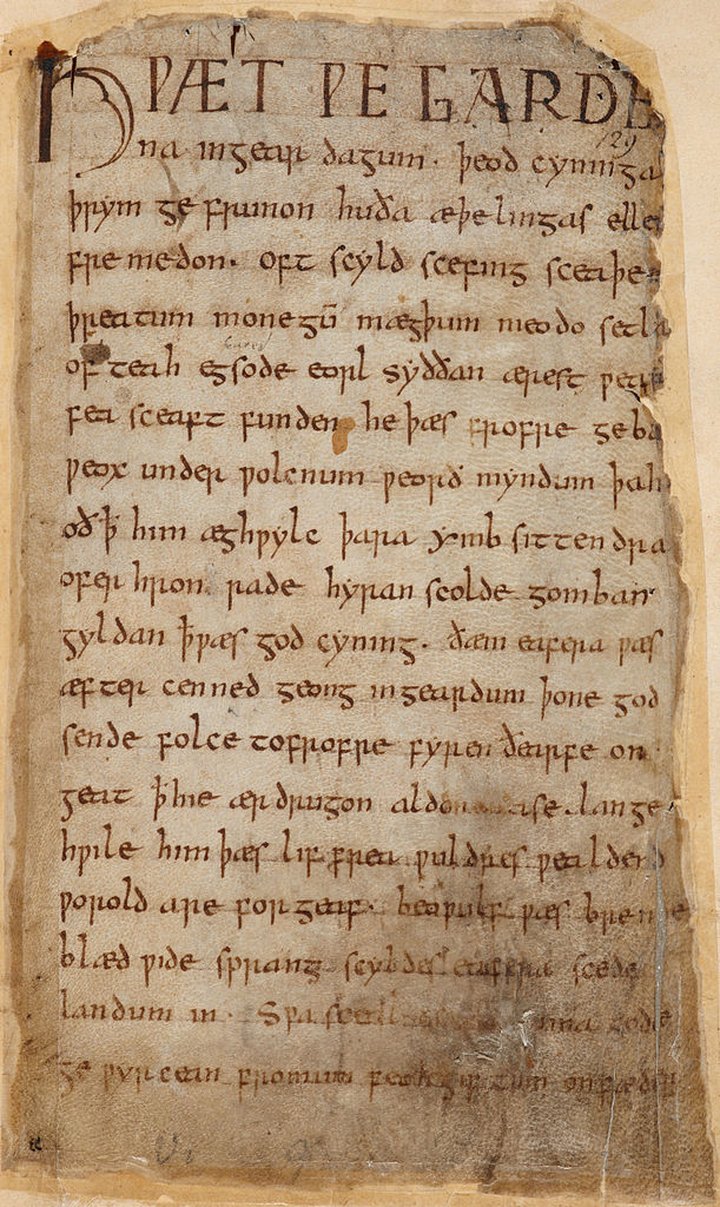
Opening page of oldest copy of Beowulf written in Old English. (British Library/Public domain)
The Tale of Genji, from about 1000, is sometimes cited as the world’s first novel. Written by Murasaki Shikibu, a Japanese noblewoman, it follows the lives of some 400 (!) courtiers during the Heian period. I love the parenthetical question, with the coy implication, “I can’t say it, but you all know who I mean!”
In a certain reign (whose can it have been?) someone of no very great rank, among all His Majesty’s Consorts and Intimates, enjoyed exceptional favor.
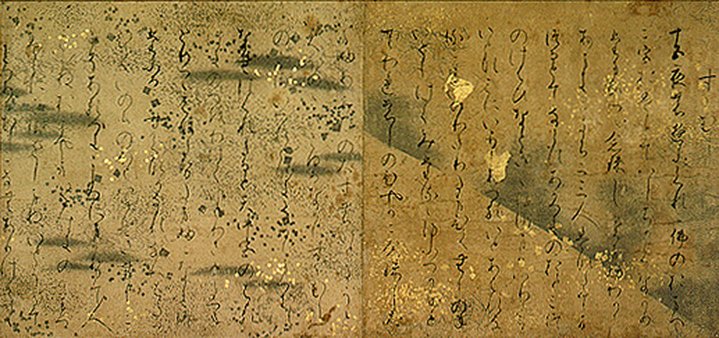
12th century illuminated scroll, Tale of Genji (Imperial Palace Kyoto/Public domain)
Don Quixote, 1605, aka The Ingenious Gentleman Don Quixote of La Mancha, usually beats out Genji as the world’s first modern novel, at least in the West. Miguel de Cervantes recounts the rollicking, bittersweet adventures of a brave-but-dotty old nobleman who has read so many stories about chivalrous knights that he thinks he is one. Elizabeth Grossman’s recent translation is completely accessible to a modern reader.
Somewhere in La Mancha, in a place whose name I do not care to remember, a gentleman lived not long ago …
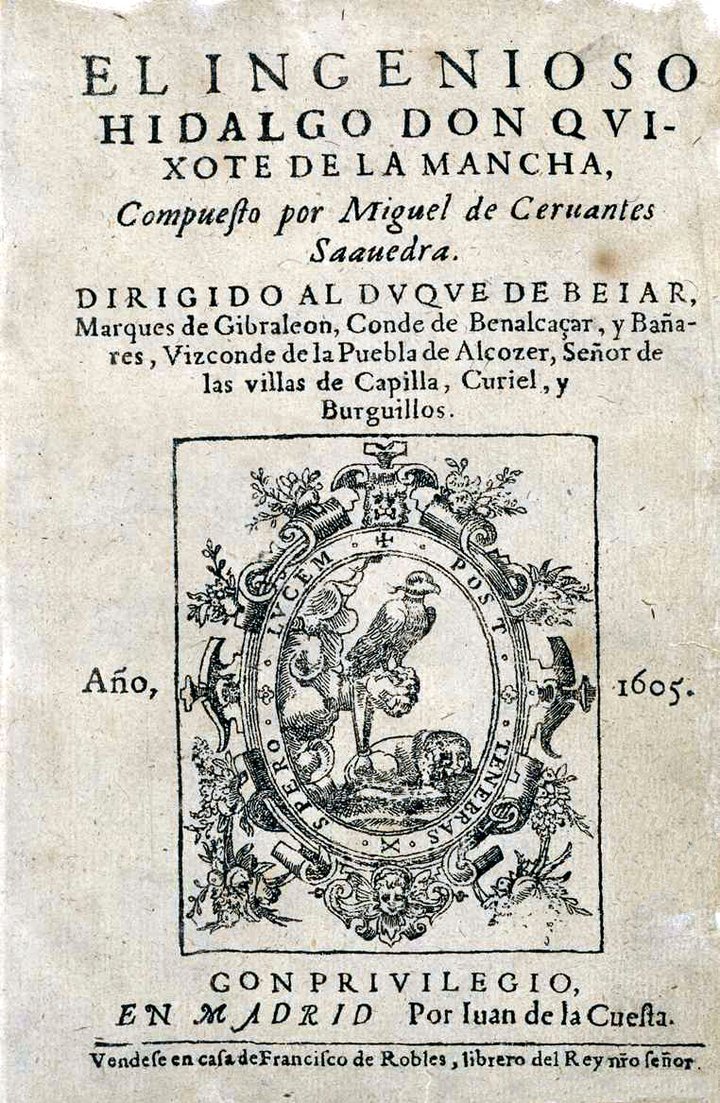
Frontispiece, first edition, 1605. (Public domain)
Hmm. I’ve got to come up with a better opening line for this essay.
CLICK TO MANAGE